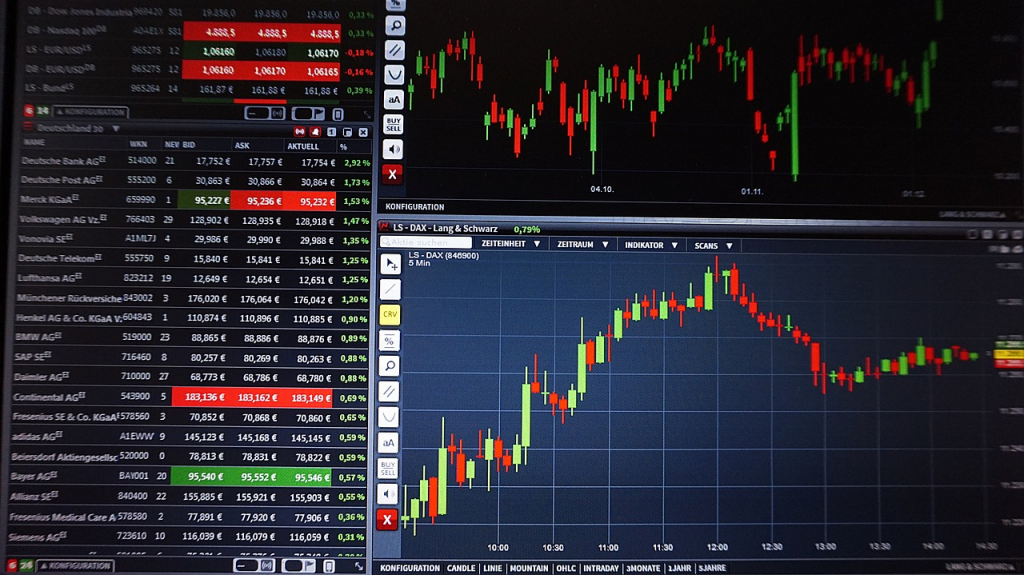In your journey as a trader, you’ve likely questioned how to navigate the often murky waters of the market while maintaining your moral compass. It’s a challenge many face, but don’t worry, it’s possible to trade ethically. This article offers you seven trading practices that stay true to moral principles, helping you to make informed, ethical decisions in your trading journey. Let’s dive in and explore these principles together.
Transparency and Honesty
Transparency and honesty form the cornerstone of moral trading practices. The people working at forexbrokerlisting.com can explain how these enable a fair and ethical marketplace where traders’ decisions are based on factual, accurate information. Transparency implies that all necessary information about a trade – its risks, costs, and potential returns – is openly shared and easily accessible. This prevents deceitful practices and promotes an environment of trust and confidence.

On the other hand, honesty requires traders to act truthfully, avoiding misrepresentation or manipulation of information. This ensures that all participants have an equal opportunity to succeed based on their skills and strategies, rather than being disadvantaged by deceit. Together, transparency and honesty create a level playing field, encourage ethical competition, and enhance the overall integrity of the trading arena. Committing to these principles is not only morally right, but it also fosters a sustainable, reputable trading environment that benefits all parties involved.
Risk Management
Risk management involves understanding, evaluating, and mitigating potential risks to ensure trades are conducted in an ethical and transparent manner. Traders who adhere to robust strategies are demonstrating a commitment to ethical decision-making. They consider the potential negative impacts of their trades, not only for themselves but also for other market participants and the market as a whole. This willingness to mitigate harm, even at the potential cost of profit, underscores a trader’s adherence to moral principles.
In addition, a sound risk management strategy includes preparing for unforeseen market movements, which promotes transparency and honesty in forecasting. It ensures that traders do not promise unrealistic returns or downplay potential losses, maintaining the integrity of the trading environment. Therefore, risk management aligns with moral trading practices by promoting transparency, safeguarding market integrity, and prioritizing ethical decision-making.
Fair Pricing and Valuation
Fair pricing ensures that the trade of goods or services is conducted at a price that is reasonable, unbiased, and reflective of the true market value. It prohibits price manipulation tactics that could exploit other traders or cause unjust influence on market trends. Similarly, fair valuation involves assessing the intrinsic value of a product or service without any deceptive inflation or deflation. It essentially requires traders to be honest and transparent about the worth of what they’re trading.
These principles promote a market environment that is equitable, reliable, and free from fraud. They discourage unethical behaviors such as overpricing, undercutting, or misrepresenting the value of trades, which could lead to significant market distortions. In essence, fair pricing and valuation foster fairness, trust, and integrity in trading, aligning perfectly with moral trading practices.
Ethical Investment Criteria
There are various criteria that make investing practices ethical. These are the following:
- Environmental sustainability
- Social responsibility
- Ethical governance
- Community engagement
- Health and well-being
- Innovation and technology
- Animal welfare
- Peace and conflict resolution
- Cultural sensitivity and respect
- Economic justice
Ethical investment criteria align with moral trading practices by ensuring financial decisions do not compromise societal and environmental welfare. Investors adhering to these criteria scrutinize potential investments for their environmental sustainability, ethical governance, and adherence to social responsibility, among others.
This approach not only prioritizes profitability but also the impact on the broader community and environment. Essentially, ethical investment is about making money while also making a positive difference. By following these guidelines, investors can support companies that align with their values, promoting responsible corporate behavior, and contributing to a fair and sustainable global economy.
Long-term Sustainability
This principle goes beyond just making profits – it involves making decisions that are ethical, responsible, and beneficial for all stakeholders involved. Sustainable traders pay keen attention to the impacts of their trading practices, assessing how their actions affect the environment, society, and future generations.
They prioritize investments that promote environmental conservation, social equality, and economic stability, thus ensuring their practices align with moral and ethical standards. By adopting sustainable trading practices, traders can contribute to a more equitable and sustainable world, fostering a marketplace that values ethical responsibilities alongside economic gain. In essence, long-term sustainability in trading is about balancing financial success with ethical commitments, shaping a trading environment that is not only profitable but also morally admirable.
Avoiding Insider Trading
Insider trading involves the use of confidential, non-public information for trading purposes, which provides the insider with an unfair advantage over other traders who lack such information. This practice undermines the principles of fairness, honesty, and transparency in trading. By avoiding insider trading, traders demonstrate a commitment to an equal playing field, where success is based on skill, strategy, and publicly available information rather than exploitation of privileged knowledge.
This fosters trust and confidence among market participants, upholds the integrity of the financial markets, and adheres to the legal and ethical standards that govern trading activities. In essence, rejecting insider trading is a clear stand for equity, fairness, and moral responsibility in trading.
Respect for Regulatory Compliance
Regulatory bodies establish rules and standards to ensure fair, transparent, and ethical trading. Adherence to these regulations signifies a trader’s commitment to legality, honesty, and fairness. It prevents unethical behaviors, such as fraud or market manipulation, that could disrupt the integrity of the market and disadvantage other traders.
Regulatory compliance also serves as a safeguard against financial crimes, protecting the interests of all market participants. In essence, it upholds a culture of respect, trust, and accountability in the trading community. Therefore, honoring regulatory compliance is not only a legal obligation for traders but also a critical aspect of moral trading, contributing to a stable, fair, and trustworthy market environment.

In closing, it’s imperative that you, as a trader, embrace these moral practices for a sustainable and ethical trading journey. Your commitment to transparency, risk management, fair valuation, ethical investment criteria, sustainability, rejection of insider trading, and regulatory compliance will not only enrich your trading experience but also contribute to a fairer, more equitable market environment. Remember, trading ethically is not just about your success — it’s about creating a better marketplace for everyone.




Recent Comments